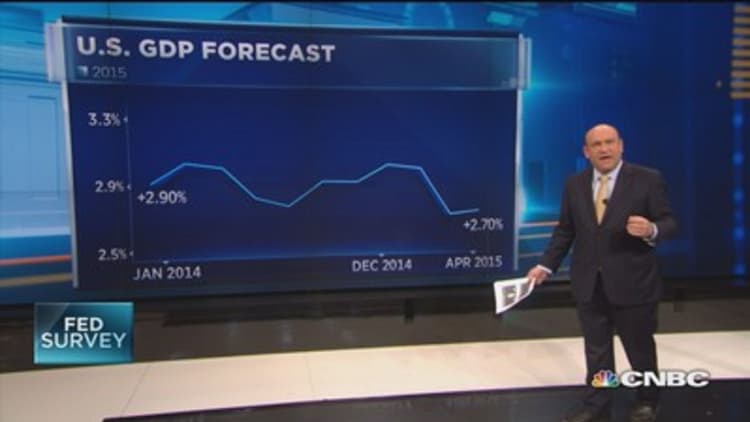The dollar rose against the Japanese yen Thursday after U.S. data showed signs of a stabilizing labor market and an economy that was gathering momentum, putting the Federal Reserve on track to raise interest rates at least once this year.
Following the upbeat U.S. data, the dollar trimmed its losses against the euro, which had earlier climbed to a two-month peak.
That said, the dollar still posted its worst monthly performance in four years against a basket of six major currencies, with a roughly 3.7 percent loss in April.
In contrast, the euro in April had its strongest monthly showing in 4-1/2 years, rising 4.7 percent.

Thursday's data showed the number of Americans filing new claims for jobless benefits tumbled to a 15-year low of 262,000 last week and consumer spending rose 0.4 percent in March, underpinning the dollar.
Another report showing U.S. wage growth of 0.7 percent for the first quarter and a better-than-expected manufacturing number for the U.S. Midwest also helped shore up sentiment for the greenback.
The reports suggested the economy was regaining momentum after slowing to a crawl in the first quarter.
Read MoreUS economy stalls in Q1 as weather, lower energy prices bite
"I maintain my belief that both the U.S. economy and the dollar will reassert themselves in due course, similar to what happened last year," said Stephen Jen, a partner at asset manager SLJ Macro Partners in London.
"The challenge is to patiently wait for evidence of this economic recovery before getting back into these trades."
In late trading, the dollar rose 0.3 percent to 119.36 yen, after earlier falling to a one-month low.
The Bank of Japan, whose steady campaign of money printing knocked more than a fifth off the yen's value in two years, held off with another round of easing on Thursday, and said it was confident inflation would begin to rise. That initially helped the yen against the dollar.
The euro advanced 0.9 percent versus the dollar to $1.1236, rising for a third straight day and to a two-month high of $1.1248. Europe's common currency has gained more than 7 percent against the dollar since hitting a one-month low on April 13.
The New Zealand and Australian dollars, meanwhile, both fell sharply in response to signs of more monetary easing in the pipeline from their respective central banks.
The Kiwi dollar last traded at US $0.7629, down 0.7 percent, while the Aussie fell 1.3 percent to US $0.7910.

